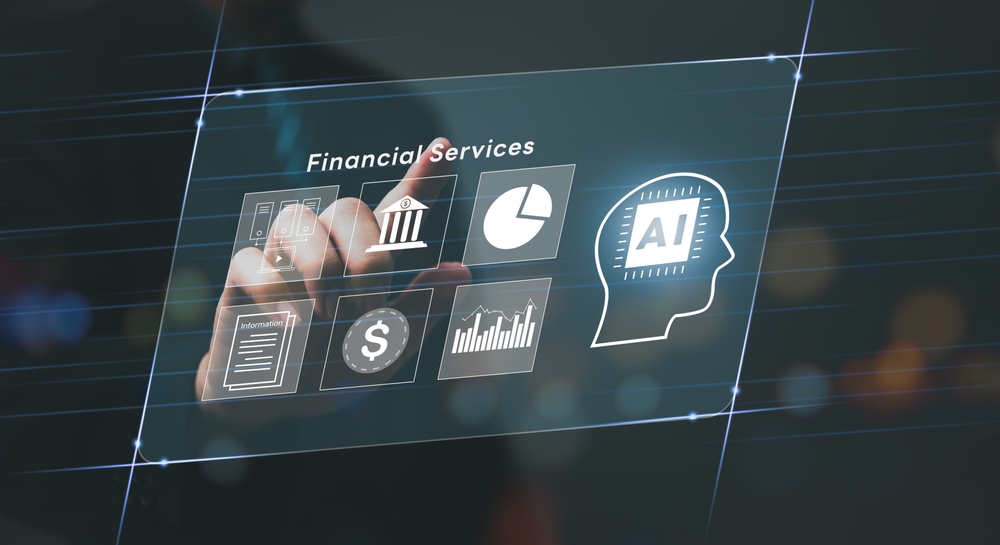Artificial Intelligence (AI) is transforming industries, and financial planning is no exception. Millennials, a generation characterized by their tech-savvy nature and desire for personalization, are increasingly turning to AI-driven solutions for their financial planning needs. This shift is driven by the unique financial challenges they face, such as high student debt, rising living costs, and an uncertain job market.
The Millennial Financial Landscape
Born between 1981 and 1996, millennials are the first generation to grow up with the internet and digital technology. This has influenced their expectations for instant access to information and personalized services. However, they also face significant financial hurdles:
- Student Debt: Many millennials are burdened with substantial student loans. According to the Federal Reserve, the average student loan debt per borrower in the U.S. is around $32,731.
- Housing Market: Skyrocketing housing prices make homeownership a distant dream for many. The National Association of Realtors reports that the median existing-home price for all housing types was $356,700 in 2021.
- Job Market Volatility: The gig economy and the rise of contract work mean that steady, long-term employment is less common. Millennials often juggle multiple jobs and side hustles to make ends meet.
- Retirement Planning: With traditional pension plans becoming rare and the future of Social Security uncertain, millennials must take a proactive approach to retirement savings.
AI in Financial Planning
AI has emerged as a powerful tool to address these challenges by offering personalized financial advice and solutions. Here are some key ways AI is making a difference:
- Robo-Advisors: Robo-advisors like Betterment, Wealthfront, and Ellevest use AI algorithms to create and manage investment portfolios tailored to individual risk tolerance, financial goals, and time horizons. These platforms offer low-cost, automated investment management, making financial planning accessible to those with limited investment knowledge or funds.
- Personalized Financial Coaching: AI-powered apps such as Cleo and Digit analyze users’ spending habits and financial behavior to provide personalized budgeting tips, savings goals, and debt repayment strategies. These tools act like a financial coach in your pocket, offering real-time advice and nudges to help users stay on track.
- Credit Scoring: Traditional credit scoring models often fail to consider the full financial picture. AI-driven credit scoring models, like those developed by Zest AI and Upstart, incorporate alternative data points, such as employment history, education, and even social media activity, to provide a more accurate assessment of creditworthiness.
- Fraud Detection: AI is enhancing security by detecting fraudulent transactions in real-time. Machine learning algorithms analyze patterns and anomalies in transaction data to identify suspicious activities, protecting users from financial fraud.
- Financial Education: AI chatbots and virtual assistants provide on-demand financial education. Tools like Bank of America’s Erica and Capital One’s Eno answer users’ financial questions, explain complex concepts, and guide them through various financial decisions.
Benefits of AI-Driven Financial Planning for Millennials
The integration of AI in financial planning offers numerous benefits for millennials:
- Accessibility: AI-powered financial tools are available 24/7, providing millennials with round-the-clock access to financial advice and support. This accessibility is particularly valuable for those with busy schedules or unconventional working hours.
- Affordability: Traditional financial advisors can be expensive, with fees often based on a percentage of assets under management. AI-driven solutions typically have lower fees, making professional financial advice more affordable for individuals with modest assets.
- Personalization: AI algorithms analyze vast amounts of data to deliver highly personalized financial recommendations. This level of customization ensures that financial plans are tailored to individual circumstances, goals, and preferences.
- Efficiency: Automation streamlines many aspects of financial planning, from budgeting to investment management. This efficiency not only saves time but also reduces the likelihood of human error.
- Transparency: AI-driven platforms often provide clear, easy-to-understand insights into financial health and progress towards goals. This transparency helps users make informed decisions and feel more in control of their finances.
AI-Driven Investment Strategies
AI-driven investment strategies are helping millennials navigate the complex world of investing with greater ease and efficiency. By analyzing vast amounts of financial data and market trends, AI algorithms can identify investment opportunities and risks that might be missed by human analysts. These algorithms can adjust investment portfolios in real-time, ensuring optimal performance based on market conditions. For instance, robo-advisors can automatically rebalance portfolios to maintain the desired level of risk, enhancing returns while minimizing potential losses.
AI and Behavioral Finance
AI is also making significant strides in understanding and addressing the behavioral finance tendencies of millennials. By analyzing spending and saving patterns, AI tools can identify common behavioral biases, such as overconfidence or loss aversion, that may impact financial decision-making. AI-powered apps can then provide tailored advice and nudges to help users overcome these biases. For example, an AI tool might recognize that a user tends to overspend on weekends and suggest a savings plan to counteract this tendency, thereby promoting healthier financial habits.
AI in Debt Management
Managing debt is a critical aspect of financial planning for many millennials. AI-powered tools are assisting in this area by offering personalized debt management strategies. These tools can analyze an individual’s debt profile, including interest rates, repayment terms, and payment history, to develop optimized repayment plans. AI can also monitor changes in interest rates and recommend refinancing options to reduce overall debt burden. This level of personalized guidance helps millennials pay off their debts more efficiently and avoid common pitfalls, such as missed payments and penalties.
Enhancing Savings with AI
AI is revolutionizing the way millennials approach savings. Traditional savings methods often lack personalization and adaptability, making it difficult for individuals to stay motivated. AI-driven savings apps like Qapital and Digit automate the savings process by analyzing users’ income and spending habits. These apps can set aside small amounts of money regularly, helping users build savings without significant effort. Additionally, AI can set personalized savings goals and provide progress updates, keeping users engaged and motivated to save more effectively.
AI and Financial Inclusion
Financial inclusion is a significant issue, particularly for millennials who may lack access to traditional financial services. AI is playing a crucial role in bridging this gap by offering innovative solutions that cater to underserved populations. AI-powered platforms can assess creditworthiness using alternative data sources, enabling individuals with limited financial histories to access loans and other financial products. Furthermore, AI-driven financial education tools can empower users with the knowledge they need to make informed financial decisions, promoting greater financial inclusion and stability.
AI for Retirement Planning
Retirement planning is a critical concern for millennials, given the uncertain future of social security and traditional pension plans. AI-driven retirement planning tools are helping millennials prepare for the future by offering personalized retirement strategies. These tools can project future income needs, estimate retirement expenses, and suggest optimal savings and investment plans. By continuously analyzing market trends and individual financial behavior, AI can adjust these plans in real-time, ensuring that millennials stay on track to meet their retirement goals.
AI and Sustainable Investing
Sustainable investing is gaining popularity among millennials, who are increasingly concerned about environmental and social issues. AI is facilitating this trend by providing tools that help identify and invest in companies with strong environmental, social, and governance (ESG) practices. AI algorithms can analyze vast amounts of data to evaluate a company’s ESG performance, ensuring that investments align with the investor’s values. By incorporating sustainable investing into their portfolios, millennials can achieve financial returns while contributing to positive societal and environmental outcomes.
Challenges and Considerations
While AI offers significant benefits, there are also challenges and considerations to keep in mind:
- Data Privacy: The use of AI in financial planning relies on access to vast amounts of personal data. Ensuring the privacy and security of this data is paramount. Users must trust that their information is handled responsibly and protected from breaches.
- Bias in Algorithms: AI algorithms are only as good as the data they are trained on. If the training data contains biases, the AI can perpetuate and even amplify these biases. For example, if a credit scoring model is trained on data that reflects historical discrimination, it may unfairly disadvantage certain groups.
- Human Touch: While AI can provide valuable insights and automation, it cannot replace the human touch entirely. Some financial decisions require nuanced understanding and empathy that only a human advisor can offer. Combining AI with human expertise can provide a more holistic approach to financial planning.
- Digital Divide: Not all millennials have equal access to digital tools and technology. Those without reliable internet access or digital literacy may be left behind. Ensuring that AI-driven financial planning solutions are inclusive and accessible to all is crucial.
The Future of AI in Financial Planning
The future of AI in financial planning looks promising, with several trends likely to shape the landscape:
- Integration with Traditional Financial Services: AI will increasingly be integrated with traditional financial services, creating hybrid models that combine the efficiency of AI with the personalized touch of human advisors. This approach can cater to a wider range of financial needs and preferences.
- Enhanced Personalization: Advances in AI and machine learning will enable even greater levels of personalization. Financial planning tools will become more adept at predicting individual needs and preferences, offering tailored recommendations that evolve with users’ financial journeys.
- Ethical AI: There will be a growing emphasis on developing ethical AI algorithms that prioritize fairness, transparency, and accountability. Regulators and industry bodies will play a key role in establishing standards and guidelines to ensure responsible AI use in financial planning.
- Financial Inclusion: AI has the potential to bridge gaps in financial inclusion by providing underserved populations with access to financial services. Innovative AI-driven solutions can cater to the unique needs of individuals with limited financial histories or unconventional employment patterns.
- Education and Empowerment: AI will continue to play a significant role in financial education and empowerment. As more millennials turn to AI-driven tools, financial literacy will improve, leading to more informed and confident financial decision-making.





